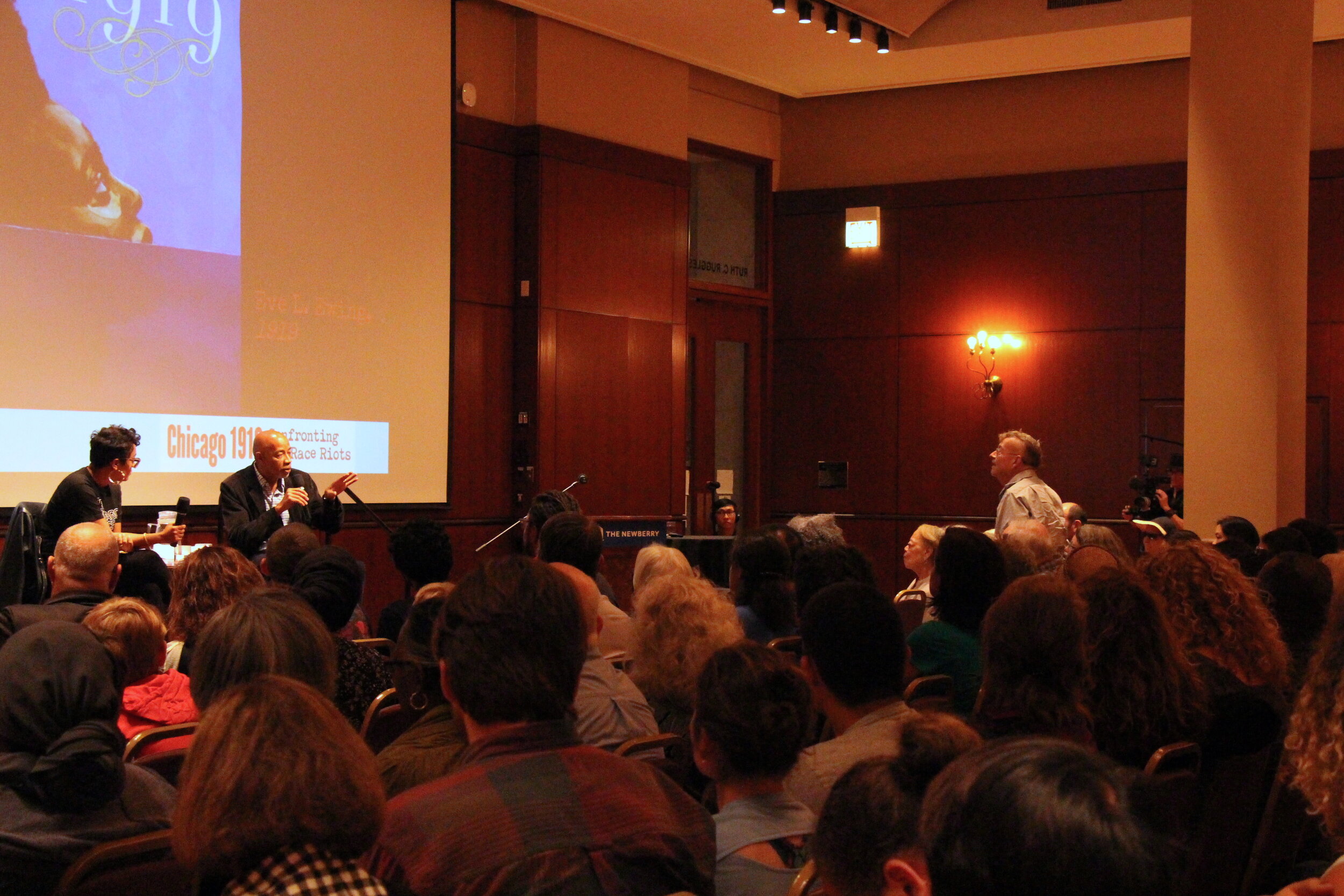Kenneth Warren, Eve Ewing talked 1919 race riots and black literature
Eve Ewing (left) and Kenneth Warren (right) in conversation about Ewing’s identity as poet, comic writer and professor.
The Chicago Race Riots of 1919 started on a Sunday in July after African American youth Eugene Williams was stoned and drowned for supposedly floating his raft across an invisible segregation line at a South Side beach. This year, a century after the events of the “Red Summer” --- so named in reference to the violent nature of the riots that ensued after Williams’ death --- the Newberry Library has launched a series of public programs, together titled “Chicago 1919: Confronting the Race Riots”, to commemorate and examine the long term impact of the riots.
“The Language of Bronzeville: Literature and Race in Chicago,” which took place on the 24th of September, was one of such public programs organized by The Newberry, examined how Black writers and poets of Chicago addressed the Red Summer of 1919 through literature. Moderated by Liesl Olson, director of Chicago Studies at the The Newberry, the event featured guest speakers Eve Ewing, whose recent book of poetry “1919,” was a direct response to the Race Riots, and Kenneth Warren, Fairfax M. Cone Distinguished Service Professor at the University of Chicago.
“One of the aims of our 1919 project is to underscore how segregation is not innate. It's not natural, it's not inevitable. It was invented and maintained for a powerful blend of violence, intimidation, and law,” remarked Olsen, who kicked-off the event by giving an overview of the historic background of the Race Riots. Olsen further presented historical photographs and written works by reporters such as Jun Fujita, whose identity as a Japanese-American photojournalist gave him a special non-partisan perspective in documenting segregation and racism in 1919, and introduced Black literary movements that sprang up Chicago in the decades following the Riots such as the South Side Writers Group, which included writers such as Richard Wright, Margarent Walker, and Frank Marshall Davis.
Guest speaker Kenneth Warren, who made the controversial argument that the concept of an African American literature became well-established only in response to the Jim Crow regime in his previous publication What is African American Literature?, contended during the event that much of African American literature that came after 1919 may not represent “a realization of militancy, but the management of the idea of race, color, religion and ideas of identity”.
Eve Ewing, meanwhile, gave a presentation of her newly published book of poetry 1919, reading several poems from the book such as “This is map” and “I saw Emmett Till this week at the grocery store”, and sang her lyric poem “Jump/Rope”. Ewing, who is a writer, comic book author as well as a sociology professor at the University of Chicago, later joined Warren in conversation about her own complicated identity, and debated with him on whether there is a definitive relationship between “the contemporary catastrophes that are defining our times and the production of the literature...right now.” Warren cautioned against thinking of current literary movements as another “Black Renaissance,” while Ewing supported the idea that the nation is seeing another “black cultural movement of note”.
“Chicago 1919: Confronting the Race Riots” programs started February 2019 and will continue until late November. Upcoming events include “Policing Racial Violence: 1919 and Beyond”, which will look at law enforcement efforts during the racial riots, and “Red Summer/Winter Blues”, which will showcase the rough cut of a new documentary on 1919 Chicago Riots placed into a more national context.



